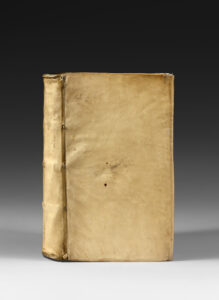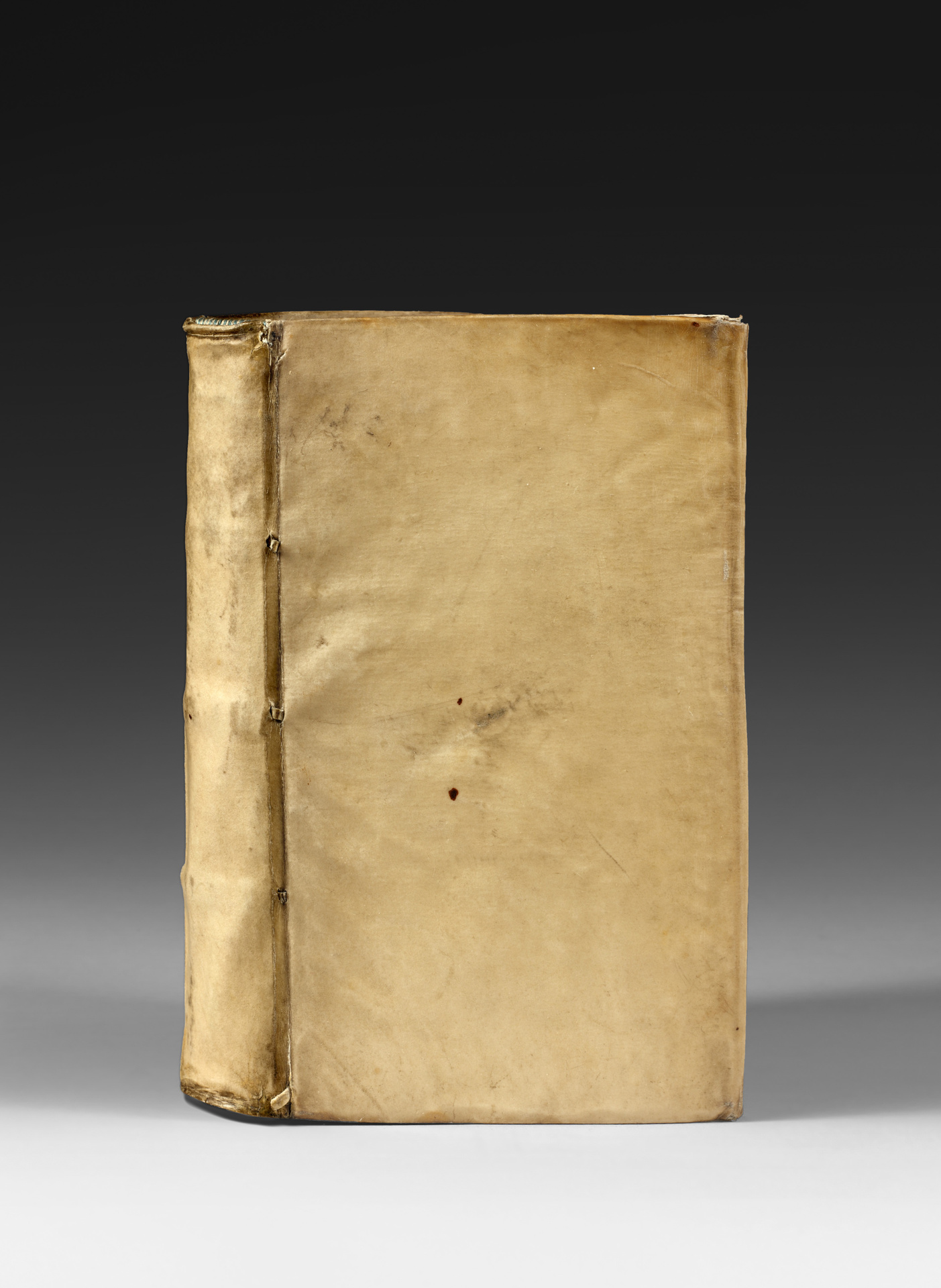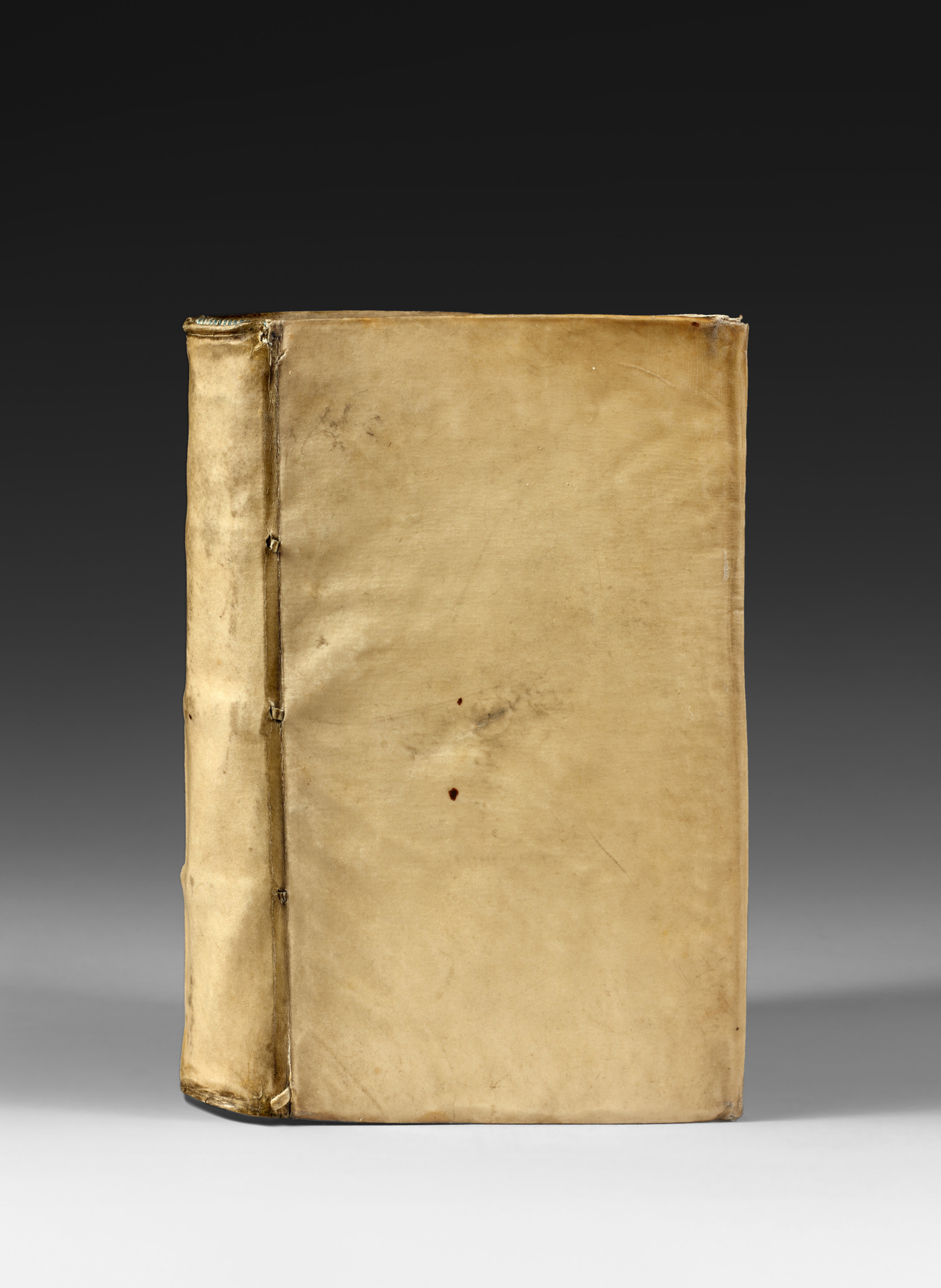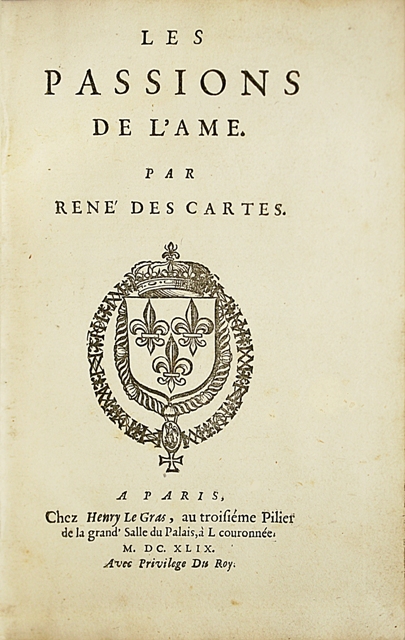Paris, Henry Le Gras, 1649.
8vo [159 x 90 mm], of (24) ll., including the title, 286 pages, (1) bl.l. Bound in full contemporary overlapping vellum, flat spine. Contemporary binding.
DESCARTES, René. Les Passions de l’âme. Paris, Henry Le Gras, 1649.
8vo [159 x 90 mm], of (24) ll., including the title, 286 pages, (1) bl.l. Bound in full contemporary overlapping vellum, flat spine. Contemporary binding.
First edition of the last philosophical work of René Descartes, published a year before his death. Tchemerzine. Editions originales, II, 791 ; Guibert, p. 150 ; Willems, 1083.
It is his most important work after the “Discourse on Method “ and the only one to directly evoke the problems of moral life.
The treatise includes 3 parts: -The first one analyzes the relationships between body and soul. -In the second part of the treatise (“Du nombre et de l’ordre des passions et l’explications des 6 premières “), Descartes examines the passions by studying them from the inside, giving us a definition for each of them. -The treatise, in its third part (“Des Passions particulières“), deals with the various passions arranged in kinds according to the “6 primitive passions” discussed in the second part.
“This first edition was printed both by L. Elsevier and by the Parisian bookseller Le Gras. That explains why one can find copies bearing the address of Louis Elsevier in Amsterdam, with Minerva as fleuron. Both aspects of this edition are printed in the elsevierian manner” (Tchemerzine).
The treatise on the passions was written in French for the Princess Palatine Madame Elizabeth, with whom Descartes had actively corresponded.
“The Princess, who was according to him a smart and gifted student with a penetrating critical mind, had noticed : ‘The senses show me that the soul moves the body, but they do not teach me, nor the understanding and imagination, the way it does this, and for that I think there are properties of the soul that are unknown to us, which may be able to reverse what your ‘Meditations’ convinced me with so many good reasons that soul is not expandable” (Letter of July 1, 1643). It’s probably because the author has the intention to clarify the relationships between soul and body that he evokes the moral life through this treatise; we have to notify that previously Descartes had carefully refused to consider this matter.”
A beautiful very pure copy preserved in its contemporary overlapping vellum.




